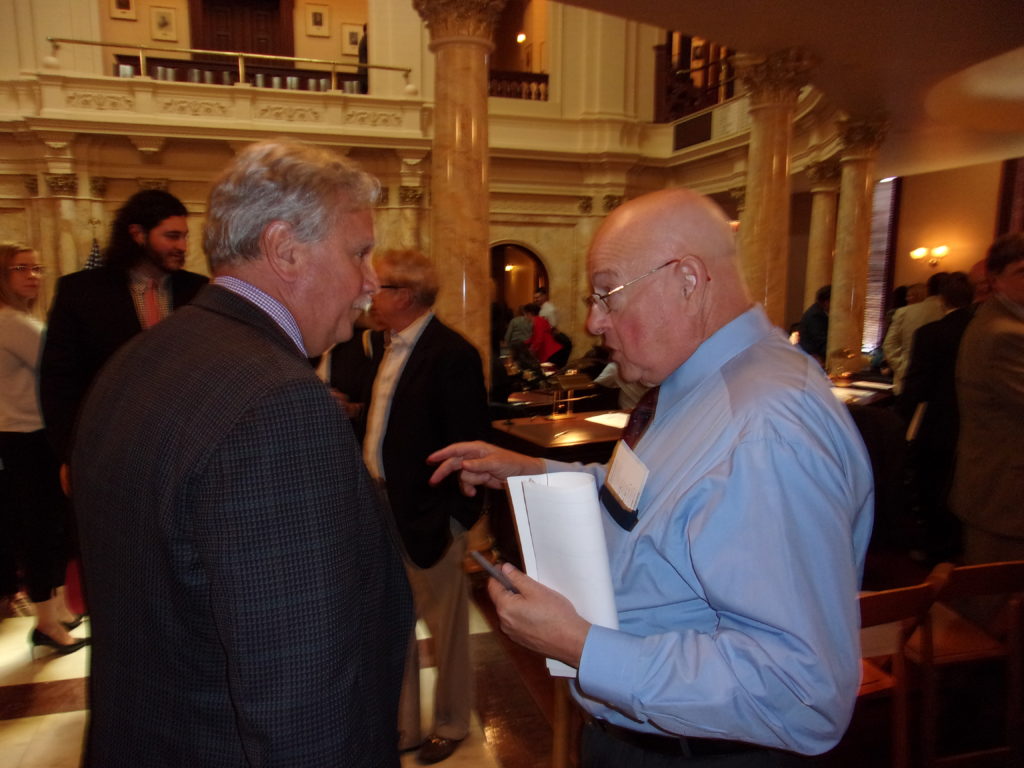McCabe is Wrong on Renewable Energy

McCabe is Wrong on Renewable Energy
In an interview by NJTV anchor Mary Alice Williams with DEP Commissioner McCabe on what will it take to get New Jersey to 100% renewable energy, McCabe’s perspective on achieving those goals are far from clean. Commissioner McCabe stated that natural gas structure of installing pipelines has helped to reduce greenhouse gases in the state of New Jersey over the past eight or ten years. McCabe also said that the Salem I & II and Hope Creek nuclear plants are built extremely well, they’ve taken a lot of precautions to prevent being damaged.
“In her interview, McCabe seemed to be more pro gas and nuclear than supporting renewable energy. There was no mention of climate or health impacts or the cost of the failure to act. We are in a climate crisis and it is even more important to reduce greenhouse gases as quickly as we can. However, the head of our DEP supports more fossil fuels for New Jersey’s energy future. This is downright shameful and a disgraceful in a climate crisis,” said Jeff Tittel, Director of the New Jersey Sierra Club.
The Murphy Administration recently published a draft of the state’s Energy Master Plan which provides a roadmap for the state on how it will achieve Governor Murphy’s clean energy goals. The EMP relies heavily on natural gas, which Commissioner McCabe says is cheaper and greener.
“Commissioner McCabe is wrong on the facts when it comes to natural gas. We have seen the building of fossil fuel plants under Chris Christie increase GHG’s from 12 million metric tons to 18 million metric tons over the last 10 years. The new proposed 13 fossil fuel projects would increase CO2 and GHG emissions by more than 32 million metric tons per year or about 32%. The disastrous LNG port in South Jersey will bring 3.5 million gallons of LNG a day to the port from truck or rail and ship it using the Delaware River,” said Tittel. “The cost to build renewable energy projects like the Orsted wind farm off Atlantic City will be cheaper in the long run because we don’t have to buy fuel every year. More importantly, wind farm will help reduce GHG emissions such as C02 by 3 million tons, which is around what the Meadowlands Power Plant would emit.”
Commissioner McCabe said in the NJTV interview that “Salem and Hope Creek are both at the end of the Delaware River where it comes out into the bay and they are on the water, but they are built extremely well. They’ve taken a lot of precautions to prevent being damaged.” She said they will also remain as a key part of the energy portfolio.
“Our nuclear plants are not renewable and have already cause serious impacts to our environment. Currently Salem 1 and 2 power plants operate without cooling towers, killing 17 billion fish each year and have caused major algae blooms. They also have to close the plant at certain times because there is too much vegetation in the water. Failure to have cooling towers is why a reactor at the Salem plant had to go offline,” said Tittel. “The $300 million a year nuclear subsidy will determine New Jersey’s energy policy for a generation, and it will. We are concerned this will prevent the state from moving forward with our 100% renewable goals by 2050. We will have to buy 40% from nuclear from now on and the subsidy will take money away from wind and solar.”
Climate impacts are already happening and will get worse. A new study based on data from the Union of Concerned Scientists shows New Jersey with 9 communities among those in the nation with the greatest percentage of homes at risk of chronic flooding by 2060 and 2100. Hoboken is ranked No. 2 on the list, trailing only Miami Beach, Florida. Atlantic City is ranked No. 3. The report was produced by 24/7 Wall Street, and ranked the 35 cities most threatened by sea-level rise.
“New Jersey is one of the most vulnerable states in the nation to impacts from sea level rise and climate change. There are many communities and neighborhoods in New Jersey that are going underwater on a regular basis. Streets are going underwater during full moons. Sewers are backing up, and even on sunny days flooding is occurring on high tides. A Zillow study found there are 61,000 homes in New Jersey now in jeopardy of flooding, and in 30-40 years that number can reach 250,000,” said Tittel. “Our state is already more health impacts form climate change too, such as a rise in lymes disease and asthma attacks.”
McCabe concluded in the interview that, “what the BPU, and we, and the government entirely needs to be doing is looking for the sweet spot that is what we need to do but what we can afford.” However the state need to find a sustainable solution fast, especially when New Jersey has consistently seen dangerous flooding. According to a study by the Union of Concerned Citizens, New Jersey leads the nation in the number of commercial properties at risk of chronic inundation in 2045.
“Commissioner McCabe’s job is not to look at the cost of these projects but their environmental impacts. She is failing to do her job. Now we understand why the DEP have failed to regulate GHG’s and CO2 because McCabe seems to be pro fossil fuel. McCabe’s energy plan for New Jersey will only exacerbate the climate crisis we are in right now. We will see more bad air quality days, more people going to emergencies room for asthma attacks, and more flooding,” said Jeff Tittel, Director of the New Jersey Sierra Club. “Scientists have been sounding the alarm for 15 years that climate change is getting worse but McCabe has decided to not to listen.”










